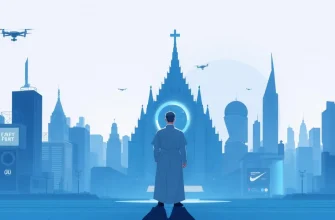Science fiction has always been a genre that pushes the boundaries of our imagination, often exploring not just the future of technology but also the deeper questions of existence, morality, and faith. This curated list of 10 films delves into the fascinating intersection of science fiction and spirituality, offering viewers a chance to reflect on belief systems through the lens of futuristic settings, alien encounters, and technological advancements. Whether it's a quest for meaning in an expansive universe or the confrontation with the divine, these films provide a unique perspective on faith, making them essential viewing for anyone interested in the philosophical and spiritual dimensions of sci-fi.
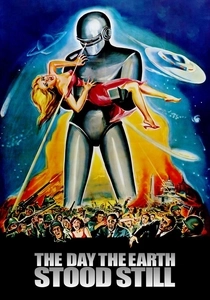
The Day the Earth Stood Still (1951)
Description: An alien arrives on Earth with a message of peace, but his presence is met with fear and hostility, testing humanity's faith in peaceful coexistence and the potential for redemption.
Fact: The film was remade in 2008 with Keanu Reeves, but the original remains a classic for its Cold War-era message.
 Watch Now
Watch Now 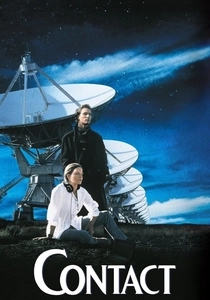
Contact (1997)
Description: This film follows Dr. Ellie Arroway, an astrophysicist who receives a message from an extraterrestrial intelligence. Her journey to meet this intelligence becomes a test of her faith in science versus her personal beliefs, making it a profound exploration of faith in the unknown.
Fact: The film was inspired by Carl Sagan's novel of the same name, and he also made a cameo appearance in the movie.
 Watch Now
Watch Now 
The Matrix (1999)
Description: While not overtly religious, "The Matrix" explores themes of belief, destiny, and the nature of reality, with Neo's journey paralleling the story of a messiah, questioning the nature of existence and the role of faith in understanding the truth.
Fact: The Wachowskis drew inspiration from various philosophical and religious texts, including Buddhism, Christianity, and Gnosticism.
 Watch Now
Watch Now 
Equilibrium (2002)
Description: In a dystopian society where emotions are outlawed, one man's discovery of art and emotion leads him to question the regime's control, exploring themes of faith in humanity's emotional capacity.
Fact: The film was shot in Berlin, Germany, to give it a unique, oppressive atmosphere.
 Watch Now
Watch Now 
The Chronicles of Riddick (2004)
Description: Riddick, a fugitive, becomes the key to humanity's survival against an ancient race of necromancers, with themes of destiny, prophecy, and faith in one's own path.
Fact: The film expands the universe established in "Pitch Black," delving deeper into Riddick's backstory and the spiritual elements of his world.
 Watch Now
Watch Now 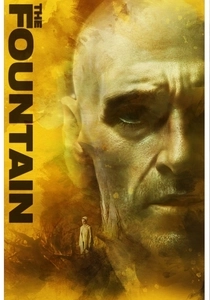
The Fountain (2006)
Description: Darren Aronofsky's film intertwines three stories across time, exploring themes of love, death, and the quest for immortality, with a strong undercurrent of spiritual and existential faith.
Fact: The film was initially conceived as a much larger project, but Aronofsky scaled it down due to budget constraints.
 Watch Now
Watch Now 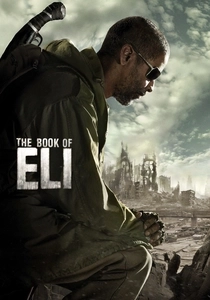
The Book of Eli (2010)
Description: In a post-apocalyptic world, Eli carries a sacred book, believed to be the Bible, on a mission to protect it, showcasing the power of faith in a world devoid of hope.
Fact: The film's ending reveals a twist about the book's contents, adding depth to its exploration of faith.
 Watch Now
Watch Now 
The Adjustment Bureau (2011)
Description: This film explores the concept of free will versus destiny, with a mysterious group known as "The Adjustment Bureau" controlling human lives, prompting the protagonist to question his faith in his own choices.
Fact: The film is loosely based on Philip K. Dick's short story "Adjustment Team."
 Watch Now
Watch Now 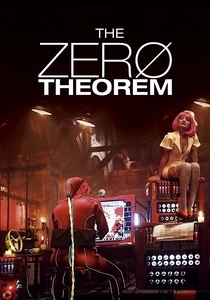
The Zero Theorem (2013)
Description: A reclusive computer genius works on a formula to prove the meaninglessness of life, but his journey leads him to confront his own beliefs and the possibility of purpose.
Fact: The film was directed by Terry Gilliam, known for his surreal and thought-provoking narratives.
 Watch Now
Watch Now 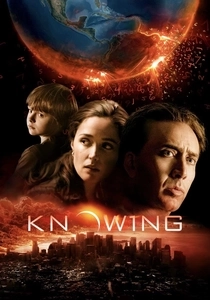
Knowing (2009)
Description: After discovering a list of dates predicting disasters, a professor's journey leads him to question the randomness of events and the existence of a higher power, blending science with spiritual prophecy.
Fact: The film's ending was controversial, with some viewers interpreting it as either a divine intervention or a natural phenomenon.
 Watch Now
Watch Now 


